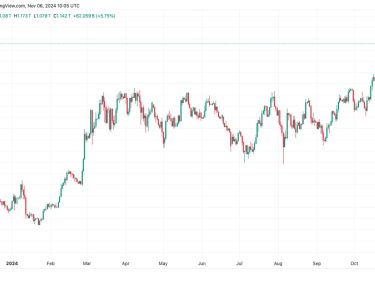SOL has jumped by almost 8% since the filing went live.
The filing is the first solana ETF registration in the U.S.
Asset manager VanEck filed to sell shares in a Solana (SOL) exchange-traded fund (ETF), the first such registration in the U.S., just six days after 3iQ filed for a similar product in Canada.
The S-1 registration form lodged with the Securities and Exchange Commission (SEC), helped lift the SOL token’s 24-hour gain to almost 8%. The CoinDesk 20 Index (CD20), a measure of the broader crypto market, has added 1.8%.
VanEck has been known to be a first mover in this space. The asset manager was the first to file for a spot ether (ETH) ETF back in 2021, almost three years before the SEC began to engage with issuers that now include BlackRock, Fidelity, Ark Invest and others. An additional filing was lodged in September last year.
“We believe the native token, SOL, functions similarly to other digital commodities such as bitcoin and ETH,” VanEck’s head of digital assets research, Matthew Sigel, wrote in a post on X arguing that SOL is a commodity, not a security. “It is utilized to pay for transaction fees and computational services on the blockchain,” he wrote.
Sigel added that VanEck filed for a solana ETF because the blockchain acts as a competitor to Ethereum with a “unique combination of scalability, speed, and low costs.”
The SEC approved the first spot bitcoin (BTC) ETF in January, while an ether ETF appears to be on the near horizon. Analysts are predicting that ETH ETFs would lure $5 billion of net inflows in the first five months.
Several experts have said that if an ETH ETF is approved, the next coin to be packaged into such a fund would be SOL because its similarities to the second-largest cryptocurrency classify it as a commodity. They suggested, however, that serious conversations around such a product wouldn’t start until 2025. Standard Chartered Bank analyst Geoffrey Kendric also considered Ripple’s XRP to be a possible option.
“[My] early thoughts are that this only has a shot to launch sometime in 2025 if we have a new admin in the White House and SEC,” Bloomberg Intelligence ETF analyst James Seyffart wrote in a post on X. “Even then [it’s] not guaranteed.”
UPDATE (27 June, 13:38 UTC): Adds quote from Matthew Sigel and context.
UPDATE (27 June, 14:00 UTC): Adds context, James Seyffart quote in last paragraph.




